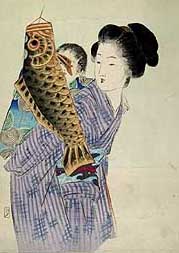I must take a momentary break in "10 Tips fo Social Success," since the article I saved and am using has gone missing. In the meantime, however, let me talk to you about "Forgive - and live longer." 
The physical healing we are looking for can sometimes come through forgiving others, but it's not easy! Experts say holding a grudge raises levels of damaging stress hormones, and that over time, this can harm the heart and raise the risk of depression!
But ... certainly forgiving takes time and effort, right? Well, that's ok!
Holding a grudge against someone brings on all kinds of invisible stress, and according to research done at Hope College in Michigan, when people remember past slights:
- their blood pressure increases
- their heart rate increases
- their muscle tension is higher
Other research suggests that stress hormone levels increase when we can't forgive and forget! The result is a weaker immune system and possibly imparied neurological function and poor memory - wow!
The remarkable thing is that when we really love our neighbor as ourselves; We do unto others as we do unto ourselves; We hate others when we hate ourselves; We are tolerant toward others when we tolerate ourselves; We forgive others when we forgive ourselves; We are prone to sacrifice others when we are ready to sacrifice ourselves. -- Eric Hoffer
Tuesday, May 30, 2006
Posted by
Tamera Pelikan
at
Tuesday, May 30, 2006
0
comments
![]()
Saturday, May 20, 2006
Tips for Social Success - #3
Keep it Short:
Tellin g long stories about people and topics others may not know or care about will bore and tire them. It's better to get right to the point.
g long stories about people and topics others may not know or care about will bore and tire them. It's better to get right to the point.
Be sure to make eye contact, include some questions for your listener in your conversation, and watch for signs of your listener losing interest:
- If your listener isn't making eye-contact with you, this could mean you've lost them already.
- Does your listener want to ask questions? Keep them on track by saying you'll get to their question is just a second.
- Is your listener relaxed? That's great!
- If your listener changes the subject, it may be he/she is unable to keep interested in what you have to say, and it's definately time to GET TO THE POINT!.
- Has your listener tried to change the subject? Not good! It may be that your listener is not practiced at being a good listener, but that isn't your concern right now.
- Is your listener smiling, or crossing her arms and shifting her weight from one leg to the other? Look for little signs that you're losing his/her interest by watching body language.
It's just make sense, and is definately good practice to remember to KEEP IT SHORT!
Posted by
Tamera Pelikan
at
Saturday, May 20, 2006
0
comments
![]()
Friday, May 19, 2006
Baby Smiles 
When I see her smiles, her giggles belong to me.
When I see her tears, my hugs belong to her.
A giggle – a grin, 
A sob – a frown,
Mimi writes them all down.
Away, on the far side of the world,
Baby smiles, baby curls!
Posted by
Tamera Pelikan
at
Friday, May 19, 2006
0
comments
![]()
Tuesday, May 16, 2006

Jaroslav Pelikan falls asleep in the Lord
Christ is Risen!
We have just learned that my husband's first cousin and St. Vladimir's seminary trustee Dr. Jaroslav Pelikan, fell asleep in the Lord this afternoon; Saturday, May 13 around 2:30 pm ... after a long battle with lung cancer.
The schedule of services in the St. Vladimir's seminary chapel is as follows:
Tuesday evening; May 16, 7:00 pm VIGIL (FUNERAL) SERVICE
Wednesday morning; May 17, 9:00 am MEMORIAL DIVINE LITURGY
Recognized by many as the most noted church historian of our time, Dr. Pelikan, along with his wife, Sylvia, made St. Vladimir's his parish home upon his reception into the Orthodox Church in 1998.
Memory Eternal!
Click below to read more about this incredibly amazing man:
http://www.yale.edu/history/faculty/pelikan.html
http://www.loc.gov/loc/kluge/pelikan.html
http://en.wikipedia.org/wiki/Jaroslav_Pelikan
Posted by
Tamera Pelikan
at
Tuesday, May 16, 2006
0
comments
![]()
Sunday, May 14, 2006
How did Mother's Day begin, anyway?
The custom of honoring mothers goes back at least as far as 17th-century England, which celebrated (and still celebrates) Mothering Sunday, celebrated the 4th Sunday of Lent.
... but, in America Mother's Day was first suggested in the year 1872, by a well-known woman, Julia Ward Howe (she wrote the words to a famous hymn - The Battle Hymn of the Republic). There was already a day in May dedicated to peace, and every year Mrs. Howe would hold organized Mother's Day meetings in Boston, Massachusets.
In 1907, a Philadelphia woman by the name of Ana Jarvis, began a campaign to establish a national Mother's Day. Ms. Jarvis persuaded her mother's church in Grafton, West Virginia to celebrate Mother's Day on the second anniversary of her own dear mother's death, the 2nd Sunday of May. By the next year Mother's Day was also celebrated throughout Philadelphia.
Ana Jarvis and her supporters began to write to everyone they could think of, with the idea of establishing a national Mother's Day. They was successful! By 1911 Mother's Day was celebrated in almost every American state. President Woodrow Wilson, in 1914, made the official announcement proclaiming Mother's Day as a national holiday that was to be held each year on the 2nd Sunday of May.
Posted by
Tamera Pelikan
at
Sunday, May 14, 2006
0
comments
![]()
Wednesday, May 10, 2006
Tips for Social Success - Tip #2
"Don't flaunt knowledge. You may think it makes you look smart and informed, but others may find you pompous. "Talking at" people is the kiss of death in making a good impression."
To be enriching, knowledge must be combined with love. We must learn how to share truth and knowledge in love, without singing our own praises!
In the Bible (I Corinthians 8:1-2), the Apostle Paul tells us that knowledge puffs up, but love builds up:
"If anyone fancies he knows anything, he does not yet understand as he should; but if anyone loves God, that person is known by Him." The "building up" given in Scripture here is like the way it is when building a house, where "puffed up" carries a meaning of being inflated like a balloon.
Paul is certainly not condemning knowledge, and of course, neither am I. Indeed, he was probably the most knowledgeable apostle of all; a highly educated and cultured man. That knowledge was put to great use in the service of God later in his ministry, but before his conversion to Christ, he used his knowledge to persecute Christians. Later he confessed that he esteemed everything he had before he came to know Christ, including his knowledge, to be quite useless and meaningless.
Paul also said: "Faith without works is dead." Likewise, "Knowledge without love is dead." In fact, knowledge without love is a dangerous enticements. Remember this: true knowledge comes out of love. True knowledge is a fruit of love. It is humble, not boasting, not attention-seeking. False knowledge is occupied with the "self" in a bid to impress others. It only puffs up the soul in pride.
Posted by
Tamera Pelikan
at
Wednesday, May 10, 2006
0
comments
![]()
Friday, May 5, 2006
Seven seconds is the average length of time you have to make a good first impression.
Although individuals should be judged by their worth, it is often a first impression that determines whether someone will take the time to let you reveal it. What a shame to allow an unwitting social blunder, such as an incorrect introduction, an inappropriate question, or an absent handshake, be the determining factor of whether someone gives you the time you need to show your attributes and abilities. If your initial meeting is not good you won' t ever get another chance to make a good first impression.
Some years ago, I cut out a little article named "10 Tips for Social Success," with the hopes of sharing it with others, and just remembering these tips for myself. Over the next 10 days, I will share these tips, along with a little of my own commentary to go with:
1) "Share the Stage! Talking about your interests is fun, but remember that social encounters can be short and others enjoy talking about their interests too."
The word ‘etiquette’ used to mean "keep off the grass". Louis XIV’s gardener noticed that the aristocrats were walking through his gardens and put up signs, or étiquets, to ward them off. The dukes and duchesses walked right past these signs. Due to this blatant disregard, the King of Versailles decreed that no individual was to go beyond the bounds of the étiquets. The meaning of etiquette would later include the ticket to court  functions that listed the instructions on where a person would stand and what was to be done. Etiquette, like language, has evolved, but it still means literally "keep off the grass". Until the 1960’s, the importance of good manners were taught without question, but with the liberated 70’s came a decline in the popularity of teaching proper etiquette. In 2004, a new emphasis has been placed on returning to traditional values. Proper etiquette and protocol has given children and adults alike a vital tool that not only provides a competitive edge, but a sense of confidence.*
functions that listed the instructions on where a person would stand and what was to be done. Etiquette, like language, has evolved, but it still means literally "keep off the grass". Until the 1960’s, the importance of good manners were taught without question, but with the liberated 70’s came a decline in the popularity of teaching proper etiquette. In 2004, a new emphasis has been placed on returning to traditional values. Proper etiquette and protocol has given children and adults alike a vital tool that not only provides a competitive edge, but a sense of confidence.*
* From an article written by Dorothea Johnson, Protocol School of Washington
Posted by
Tamera Pelikan
at
Friday, May 05, 2006
0
comments
![]()
Wednesday, May 3, 2006

Celebrating Boys Day Koinobori - Carp Streamer By Keigetsu (1876-1963)
Golden Week in Japan is a group of national holidays, beginning with April 29th and ending with May 5th.
With well-placed weekend, this is not only the longest holiday period in Japan each year, but a very popular time for many family traditions, as well.
April 29: Midori no Hi
- Green Day, -April 29 was the birthday of Emperor Hirohito, Showa period, who died in 1989. Following his death, the holiday was changed to Midori no Hi, in honor of the environment and nature.
May 3: Kenpo Kinenbi
- Constitution Day - on May 3, 1947, the new post-war constitution became law.
May 4: Kokumin no Kyujitsu
- "Between Day" This recently created national holiday was added in order to make the Golden Week a continuous holiday period.
March 5: Kodomo no Hi
- Children's Day - This holiday was originally called Tango no Sekku or Boys Day or Festival. Families with boys would celebrate by flying koi nobori or carp streamers and gogatsu ningyo or May dolls.
Now all children celebrate this holiday with their parents and enjoy special foods such as rice dumplings wrapped in bamboo leaves and mochi wrapped in oak leaves. Oak and bamboo symbolize longevity and strength. Hinamatsuri or Girls Day is celebrated on March 3 and is not a national holiday, although there are many that feel it should be.
Travel Hint :If you are going to Japan on business, do not go during Golden Week! However, if you are looking for a lovely time of the year and a cultural experience, by all means, a visit during this week is a great idea!
Posted by
Tamera Pelikan
at
Wednesday, May 03, 2006
0
comments
![]()








